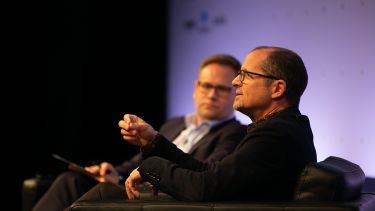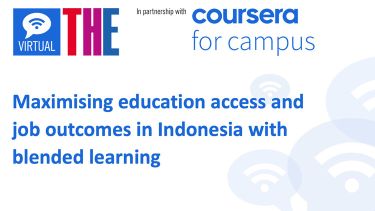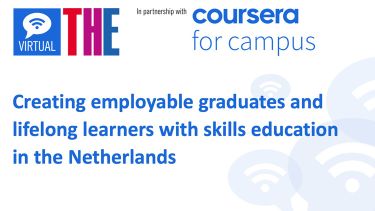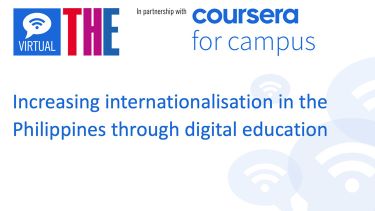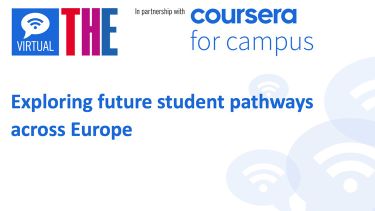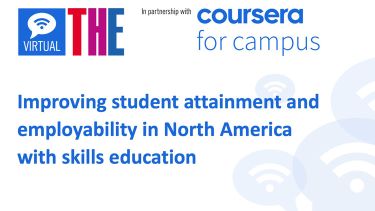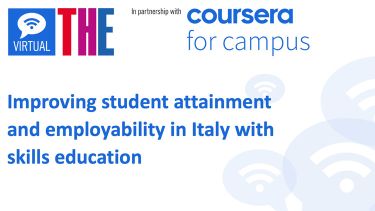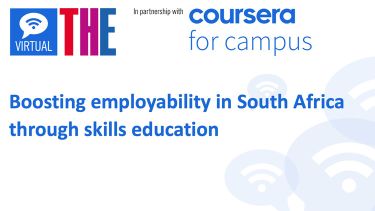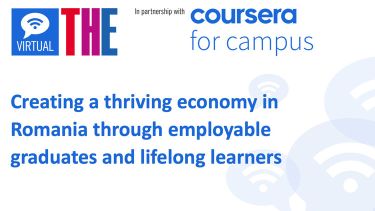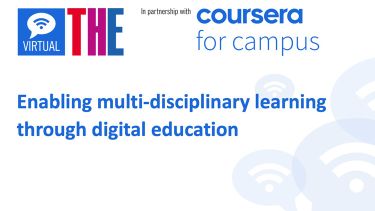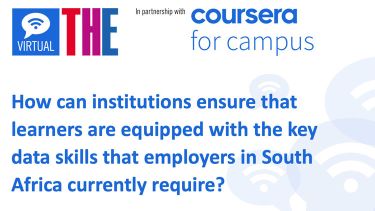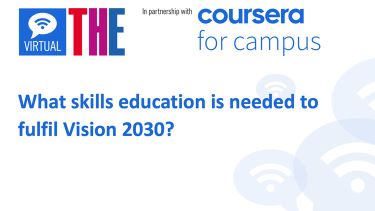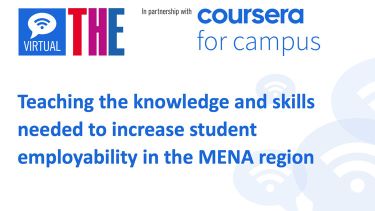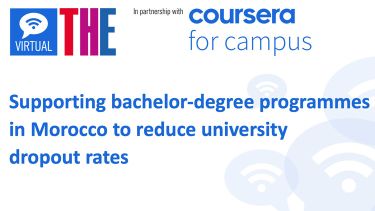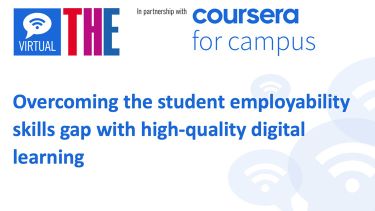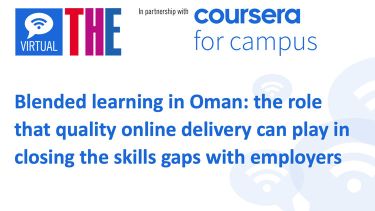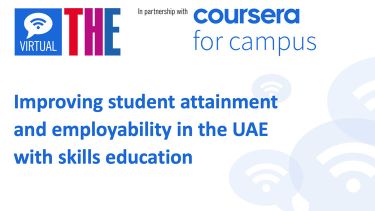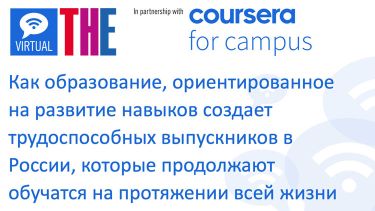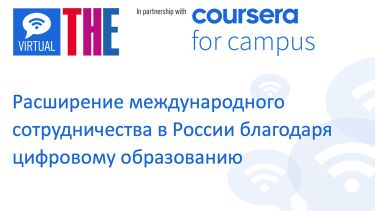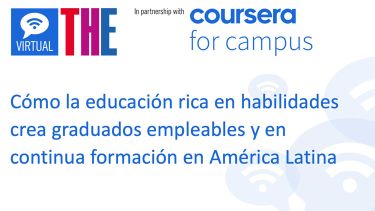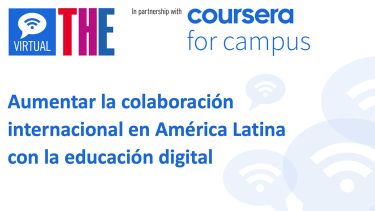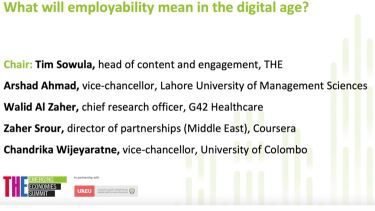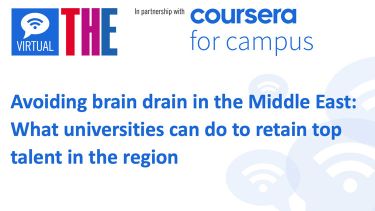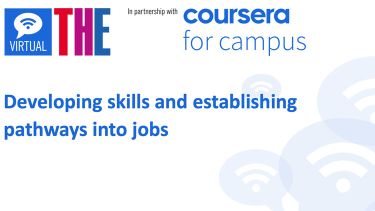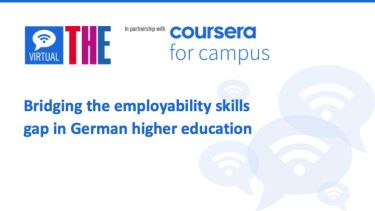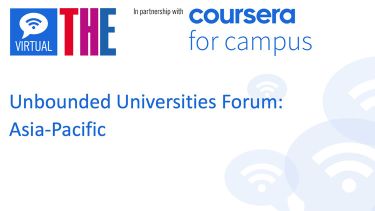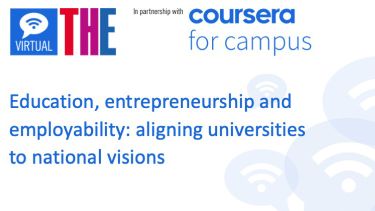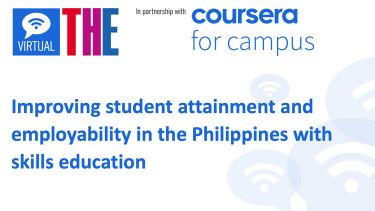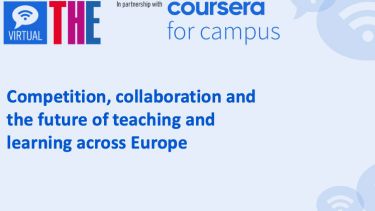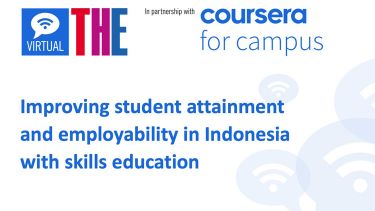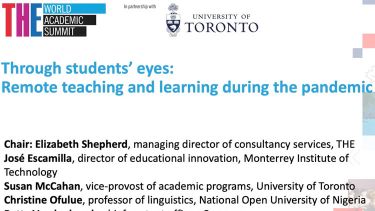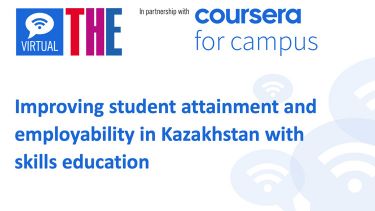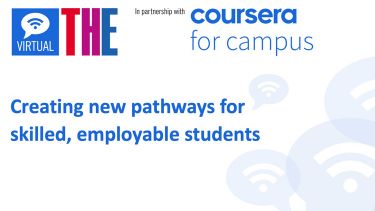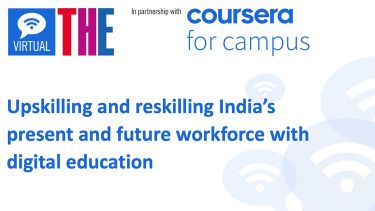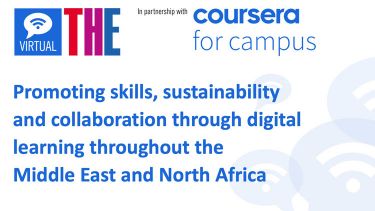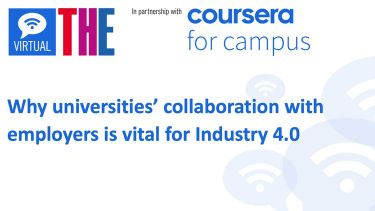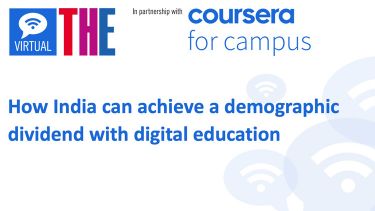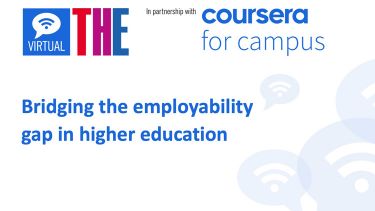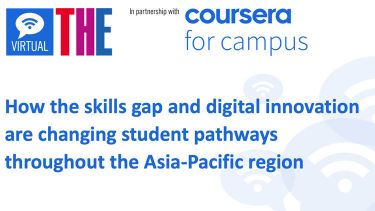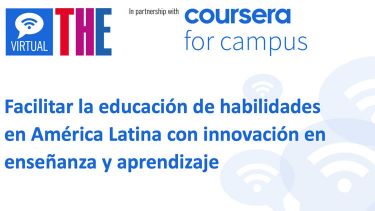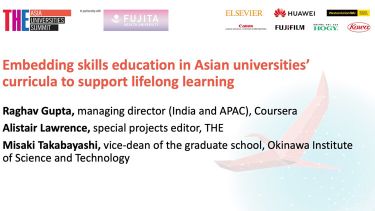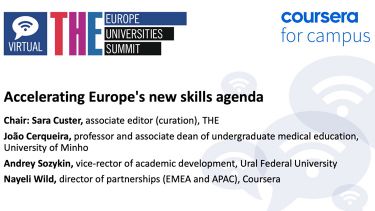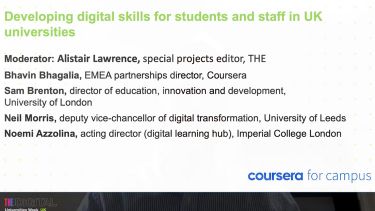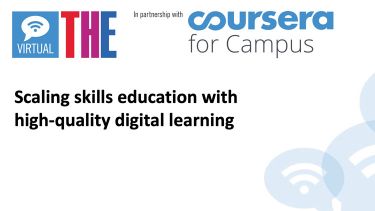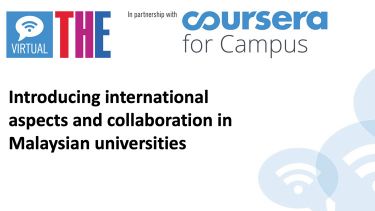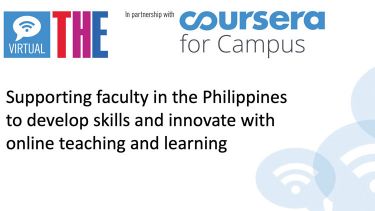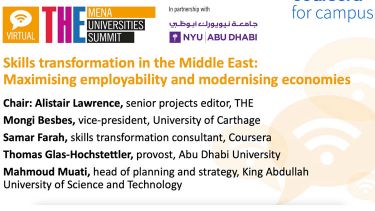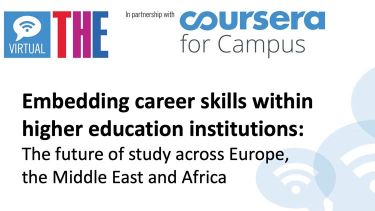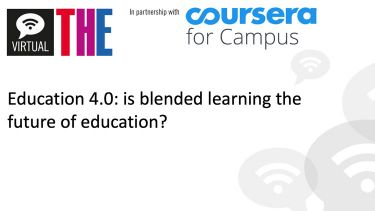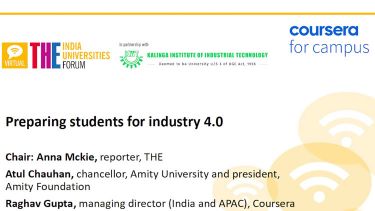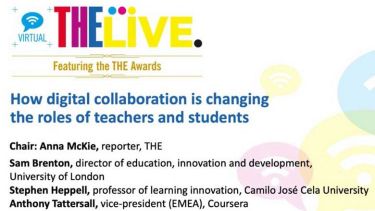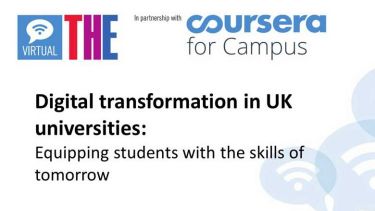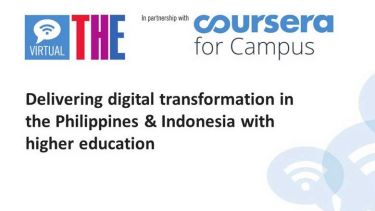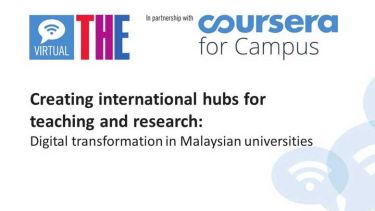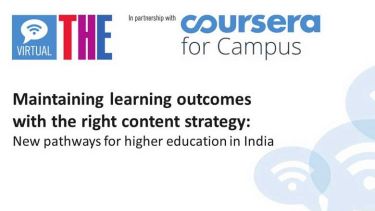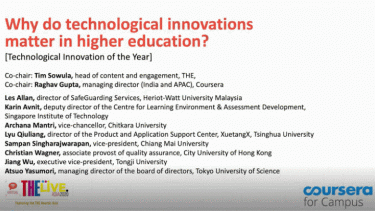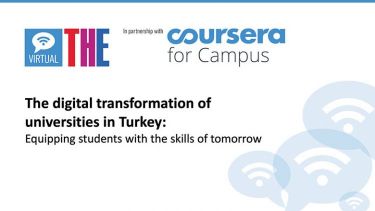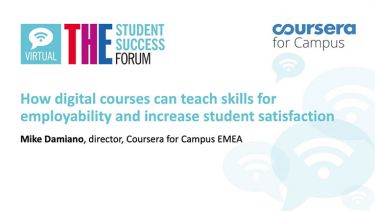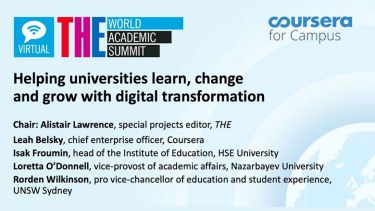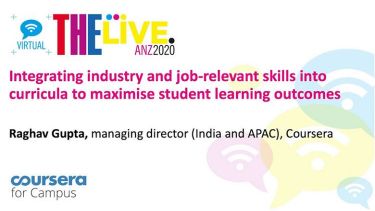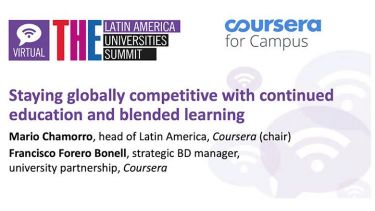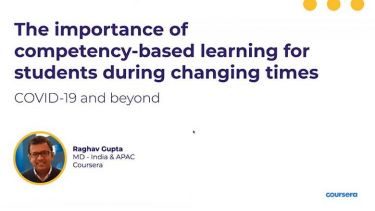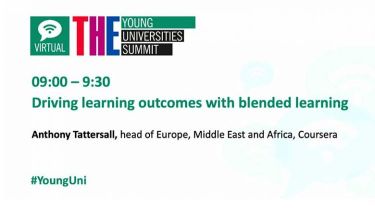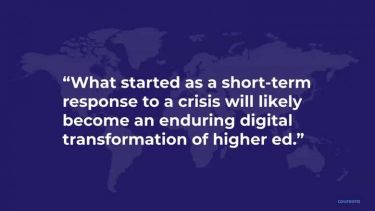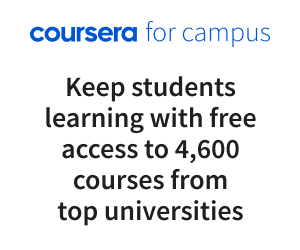How international collaboration and a global approach can help universities absorb the shocks of technological disruption and ready their students for a digitally transformed workplace
Internationalism is driving innovation in higher education at a time when it needs it most. Technology-driven disruption is now a fact of life, creating skills gaps that can threaten graduate employability. But by adopting a more internationalist approach, institutions offer students a broader learning experience. Internationalism enables universities to draw upon expertise from global partners, sharing educational content across online learning platforms such as Coursera, incorporating more work-relevant skills into the curricula and supporting lifelong learning.
At the THE Unbounded Universities event, hosted by Times Higher Education in partnership with Coursera for Campus, industry leaders from the Asia-Pacific region discussed how internationalisation presented exciting opportunities for their institutions to modernise and prepare their students for the workplace with digital leadership skills. Internationalism was a great leveller in higher education, facilitating the transfer of knowledge across borders and improving access to expert tuition – which is of particular importance when it comes to teaching bleeding-edge technologies.
“I really feel one of the most important things that has come out of this internationalisation across the APAC region is really for countries without well-developed higher education systems to now be able to access higher education of the highest quality in other countries,” said Lily Chan, chief executive and vice-chancellor of Wawasan Open University. “Coursera has really provided a platform for many of us to understand what is the latest, what is the trend, and that feeds back into innovation across all regions, not just APAC.”
Peter Laurel, president of Lyceum of the Philippines University, acknowledged that the pandemic combined with the urgent need for an agile digital transformation is creating a challenging environment, but higher education is being presented with a unique opportunity to innovate. The university was no longer the sole repository of information; it can source talented instructors from across the world and adopt clear international assessment standards, foregrounding the needs of the workplace in skills-based training. “I think that is an incredible innovation that we have to be agile enough to jump into,” said Laurel. “The idea of micro-badging in an industry-driven setting is incredibly attractive.”
The panel spoke of what was required of the next generation of digital leaders. Technology was changing the nature of work at such a pace that it was essential graduates had the skills to adapt.
Raghav Gupta, Coursera’s managing director for India and APAC, noted that businesses in many sectors will work remotely, allowing them to access an international pool of talent, and that this, allied to the evolution of digital services, created a double disruption for students. Managing work relationships that convene remotely and across international borders will be a defining feature of the 21st-century workplace, and cross-cultural soft skills were essential. The next generation of digital leaders would have to develop interpersonal skills and ethics to support their technological literacy.
“Since we are talking about internationalisation, cross-cultural sensitivity and how it is taught to people is an important issue,” said Prakash Gopalan, director of Thapar Institute of Engineering and Technology. He questioned whether today’s graduates were ready for the workplace. It was incumbent on universities in technical disciplines to train practitioners. “Once they are on the shop floor, or even in the IT space, are they able to understand the language that the professionals speak from day one?” he asked. “Or at the end of six months? That is very, very important to the employer.”
The panel noted the difficulties they faced – digital inequality remained an issue – but they agreed that the opportunity to embrace internationalism and modernise the curriculum had arrived.
Watch the session on demand above or on the THE Connect YouTube channel.
Find out more about Coursera for Campus.




